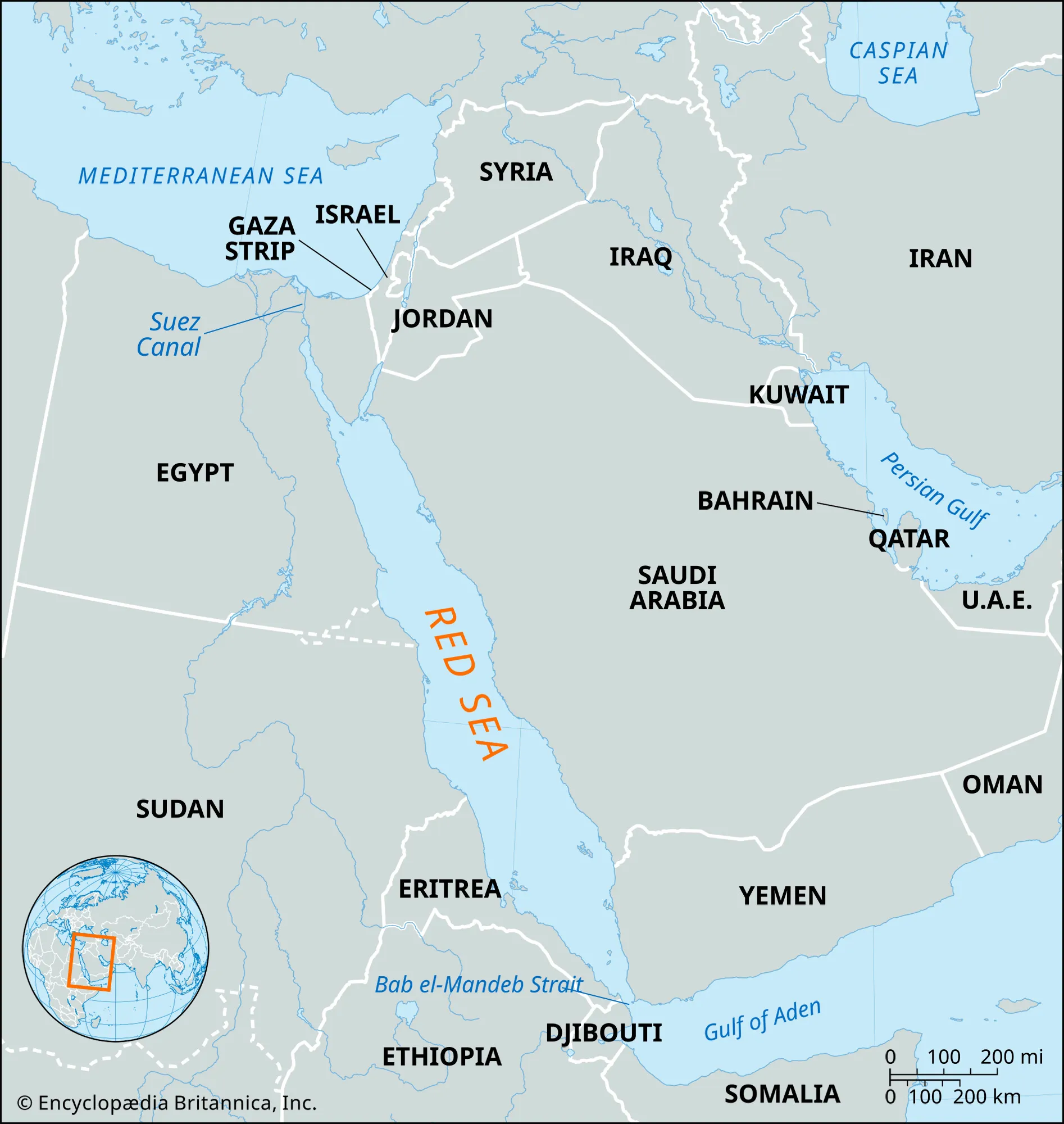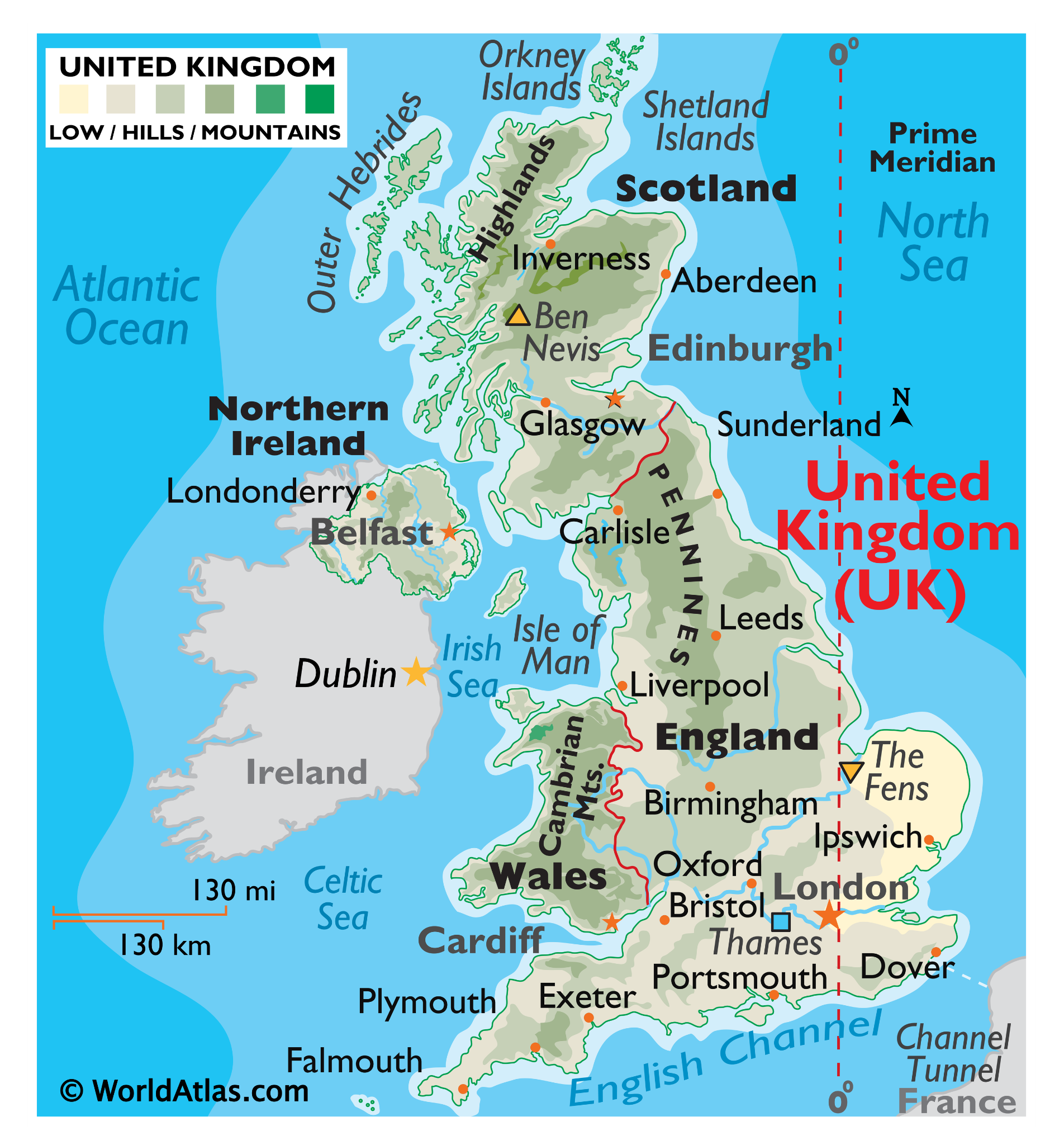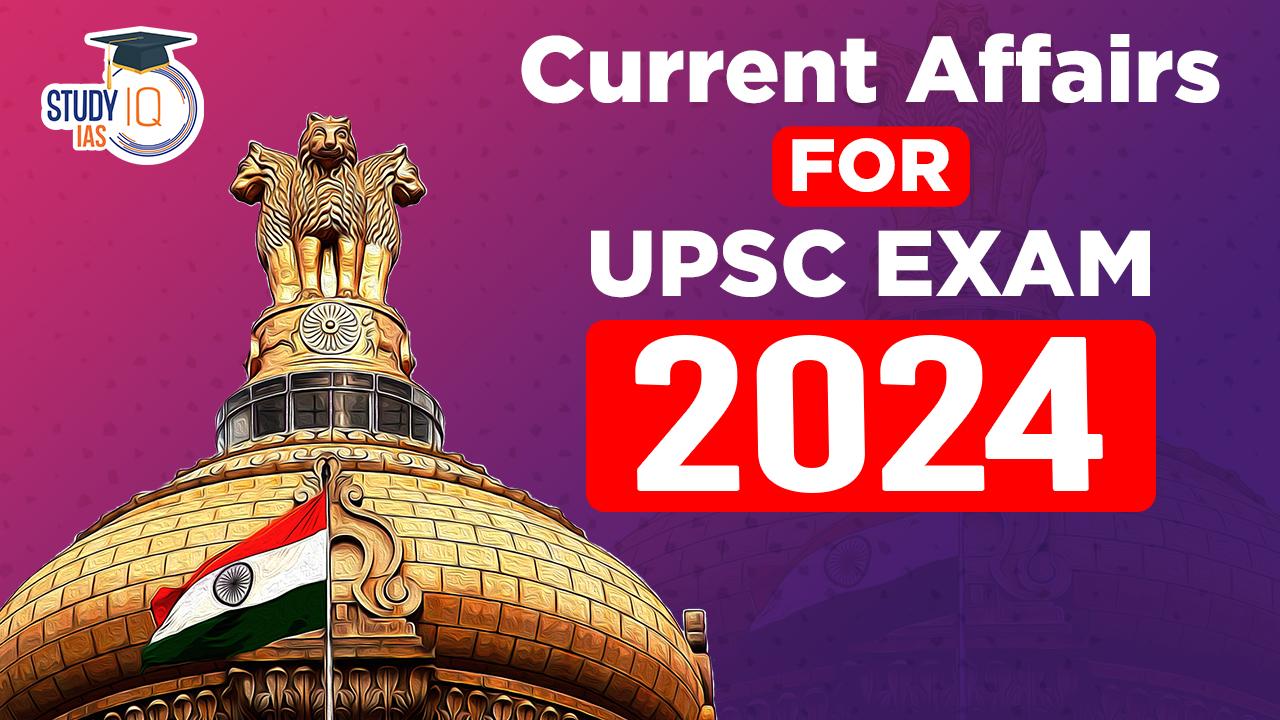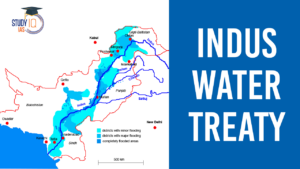Table of Contents
Protecting Red Sea Shipping
Context:
- Despite theS.-led Operation Prosperity Guardian to protect commercial traffic through the Red Sea, shippers have warned that the Houthi factor could compel the use of longer routes for several more months.
- The European Union also launched a naval mission to protect Red Sea shipping from Yemen’s Houthi rebels as a U.S.-owned cargo vessel repeatedly came under fire in the region.
About Operation Prosperity Guardian
- Goal: Counter Houthi attacks on merchant ships in the southern Red Sea.
- Led by: US, under the Combined Task Force 153 (CTF 153).
- Reason for escalation: Houthi attacks initially targeted ships supporting Hamas, but have expanded to include all merchant tankers in the Bab el-Mandeb strait.
- Participants:
- US: Three destroyers
- UK: HMS Diamond
| EU Red Sea Mission |
|
- Potential impact:
- Increased security for merchant ships in the region.
- Deterrence of future Houthi attacks.
- Potential for longer shipping routes due to continued Houthi activity.
- Increased shipping costs for exporters.

What are the Ongoing Issues?
Disruptions to global shipping caused by Houthi attacks:
- The Houthi rebels in Yemen have been launching attacks on ships in the Red Sea since November 2023, targeting both commercial and military vessels.
- This has caused disruptions to global shipping lanes, as the Red Sea is a crucial waterway for trade between Asia, Europe, and Africa.
- For instance, the Red Sea region is critical for 30% of global container traffic and 12% of global trade.
- This could have ripple effects on other countries that rely on trade through the Red Sea.
Heightened geopolitical tensions in the region:
- The Houthi attacks are part of a wider conflict in Yemen, which has been ongoing since 2015.
- The recent escalation in attacks is linked to the ongoing war in Gaza between Israel and Hamas, with the Houthis claiming their actions are in support of the Palestinians.
- This has increased tensions between Iran (which backs the Houthis) and Saudi Arabia (which leads a coalition supporting the Yemeni government).
- The involvement of regional and international powers raises concerns about a wider conflict erupting in the already volatile Middle East.
We’re now on WhatsApp. Click to Join
Northern Ireland– Political Deadlock
Context: After a pause in cooperation following the 2022 elections, the two leading parties in Northern Ireland have now formed a new government.
Background: Brexit and Northern Ireland’s Dilemma
- Brexit Referendum: In 2016, the U.K. voted to leave the EU, triggering complex negotiations due to Northern Ireland (NI) sharing a border with EU member Ireland.
- Good Friday Agreement: The 1998 agreement brought peace to NI and required the maintenance of an open border between Northern Ireland and Ireland.
- 2016 Aftermath: The U.K.’s decision to leave the EU necessitated a new approach to the NI border to preserve the Good Friday Agreement and the EU’s single market.

The DUP’s Boycott and Political Stalemate
- 2020 Withdrawal Agreement: The Democratic Unionist Party (DUP) supported the U.K. government’s withdrawal but opposed the resulting trade border in the Irish Sea.
- 2022 Stormont Elections: The DUP boycotted the government formation following the elections due to the trade border issue.
Deals Made to Address Trade and Governance
- Windsor Framework: Introduced in 2023 to simplify trade between NI and Great Britain, distinguishing between goods staying in the U.K. and those going to the EU.
- Command Paper Proposal: Eased trade procedures further by exempting 80% of goods from checks and creating an oversight body for NI’s market status.
Outcomes and Government Formation
- Sinn Fein’s Victory: Sinn Fein won the most seats in the 2022 elections, advocating for Irish unity and signalling a shift in NI’s political landscape.
- First Nationalist Prime Minister: Michelle O’Neill of Sinn Fein became NI’s first nationalist Prime Minister, with the DUP’s Emma Little-Pengelly as deputy.
- DUP’s Return to Governance: Amidst economic pressures and demographic changes, the DUP returned to the government, needing to address the new realities.
| What Is Windsor Framework? |
| The ‘Windsor Framework’ replaced the Northern Ireland Protocol.
Key Aspects Of the Framework
Northern Ireland Protocol
|
Privilege Committee of Lok Sabha
Context: The Supreme Court halted the summons of the West Bengal Chief Secretary and other officers by a Lok Sabha Privilege committee investigating a BJP MP’s complaint of mistreatment.
About the Privilege Committee
- Composition: The Lok Sabha’s Privileges Committee has 15 members nominated by the Speaker.
| For Rajya Sabha |
|
- Function: It investigates breaches of privilege of the House or its members upon referral.
- Process:
- Members can raise privilege questions with the Speaker’s consent.
- The committee examines cases, hears testimonies, and reviews evidence.
- There is no deadline for the committee to issue its report.
- Recommendations: The committee makes recommendations at its discretion after review.
- Punishments:
- The respective Houses of Parliament decide on punishments.
- Penalties can include suspension or expulsion from the House.
- Past Incidents:
- In 2005, 11 MPs were expelled for a cash-for-query scandal.
- In 1978, Indira Gandhi was expelled following the Justice Shah Commission’s Emergency abuses report.
| Parliamentary Privilege |
|
Use of AI in Scientific Discoveries and Healthcare
Context: The iOncology AI initiative, leveraging a supercomputer in Pune and the Charak I server at the National Cancer Institute campus in Jhajjar, represents a significant advancement in the use of Artificial Intelligence (AI) in healthcare and scientific discovery.
About iOncology AI Project
- Goal: Develop an AI-powered platform (iOncology AI) to help oncologists select the most effective treatment for cancer patients based on their genetic makeup.
Key Features:
- Data Collection: Stores patients’ blood tests, lab reports, scans, and medical history.
- Accuracy: Trained on 1,500 breast and ovarian cancer cases, achieving 75% accuracy compared to clinician diagnosis.
- Focus Cancers: Currently trained for breast and ovarian cancers, expanding to head and neck, colorectal, and blood cancers.
- Confidentiality: Maintains patient privacy through individual logins and anonymized data analysis.
Significance:
- Improved Treatment Selection: Provides data-driven insights to guide oncologists in choosing the best treatment for each patient.
- Personalised Medicine: Advances personalised medicine by considering individual genetic variations for targeted therapy.
- Early Detection Potential: May contribute to earlier cancer detection through AI-assisted analysis of scans and reports.
- Resource Optimization: Offers potential for effective treatment in resource-limited settings.
- Data-Driven Research: Generates valuable data for developing prevention strategies and treatment protocols specific to the Indian population.
Future Scope:
- Expand AI models to cover more cancer types and treatment modalities.
- Integrate epigenetic data to understand how genes are regulated, further personalising treatment.
- Validate and implement the platform in wider clinical settings.
| AlphaFold 2 |
|
AI Cameras to monitor Elephants
Context: The Forest department has installed an artificial intelligence (AI)-enabled surveillance camera system at Anakkulam, under the Mankulam forest division in Idukki, to provide imagery of herds of wild elephants.
More In News
- The Mankulam forest division has implemented the project in association with the Government Engineering College, Idukki.
- The Mankulam forest division is one of the UNESCO World Heritage Sites in the Western Ghats in the State.


 Indus Water Treaty 1960 Suspended by Ind...
Indus Water Treaty 1960 Suspended by Ind...
 5 Years of SVAMITVA Scheme and Its Benef...
5 Years of SVAMITVA Scheme and Its Benef...
 Places in News for UPSC 2025 for Prelims...
Places in News for UPSC 2025 for Prelims...





















